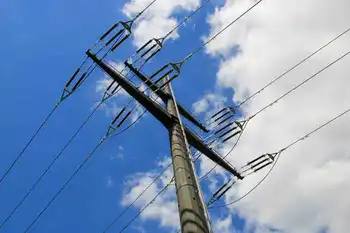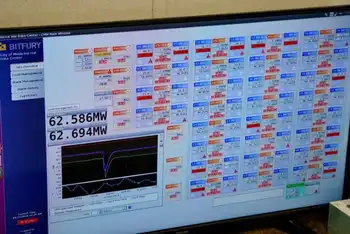Shearon Harris gave answers to tests
As a result, numerous guards were not tested or properly qualified in 2005 to protect the Progress Energy-owned nuclear plant, Nuclear Regulatory Commission inspectors said. The NRC informed Progress Energy and Securitas Security Services USA, which provides contract security at the nuclear plant, of the apparent violations after conducting an investigation of security breaches at the nuclear plant in January 2006.
The probe came in response to whistle-blower complaints brought to light by N.C. WARN, a Triangle-based nuclear watchdog group, and the Union of Concerned Scientists, a national group.
The scientists' group obtained the recent letters sent to Progress and Securitas.
The NRC said because the actions were willful violations, Progress and Securitas could face enhanced sanctions or civil penalties. The NRC said that no notice of violation had been issued because no final decision had been made. It has offered Progress nergy and Securitas a chance to respond in writing or meet privately to discuss the findings. "That particular issue has not been resolved," Roger Hannah, a spokesman for the NRC, said.
"It's still going through our enforcement process." Julie Hans, a spokeswoman for Progress Energy, said the utility had retested guards in January 2006 after allegations of cheating arose and before the NRC validated them.
"We had every one of our security guards retested using an alternate testing practice where training personnel rather than platoon supervisors oversaw and proctored the exams to add a layer of independence," Hans said. "We continue to use that practice.”
Federal regulations require security guards at nuclear plants to requalify every 12 months to perform security-related tasks. The report said it was Progress Energy's responsibility to ensure that security guards were being properly tested. It said Securitas was ultimately responsible for the actions of its supervisors and the apparent violations.
Securitas provides contract security guards at Progress Energy's four nuclear plants in North Carolina, South Carolina and Florida. The company did not respond to a request for comment. Hans said the three guard supervisors implicated in the cheating scandal were no longer employed by Securitas.
"We absolutely don't tolerate cheating," Hans said. In a summary of findings, NRC investigators said two supervisors with Securitas admitted under oath to handing out answer keys along with the written tests in September 2005.
Another supervisor admitted he reworded questions in two tests to give the gua ds the correct answer. Jim Warren, executive director of N.C. WARN, said the NRC findings confirmed what whistle-blowing guards had reported. "Those sets of qualification tests are essential to the defense of nuclear power plants," Warren said. David Lochbaum, a nuclear safety engineer with the Union of Concerned Scientists, said they had heard about cheating on state-required tests for guards to carry handguns.
The letters cited cheating on two different NRC-required tests, suggesting it was ore widespread, he said. "The good news is it's something in the rearview mirror," Lochbaum said. "The problem has been exposed."
Related News

Starting Texas Schools After Labor Day: Power Grid and Cost Benefits?
TEXAS - As Texas faces increasing demands on its power grid, a new proposal is gaining traction: starting the school year after Labor Day. This idea, reported by the Dallas News, suggests that delaying the start of the academic year could help alleviate some of the pressure on the state’s electricity grid during the peak summer months, potentially leading to both grid stability and financial savings. Here’s an in-depth look at how this proposed change could impact Texas’s energy landscape and education system.
The Context of Power Grid Strain
Texas's power grid, operated by the Electric Reliability Council of Texas (ERCOT), has…





